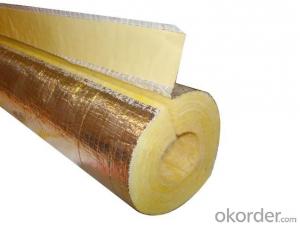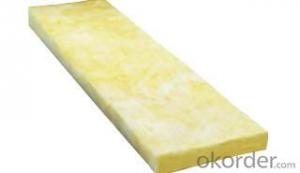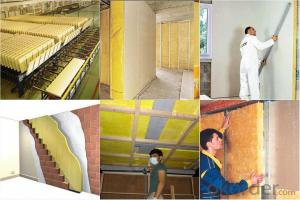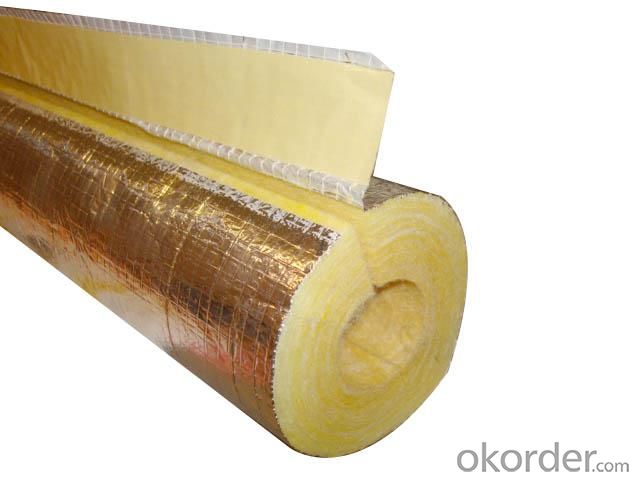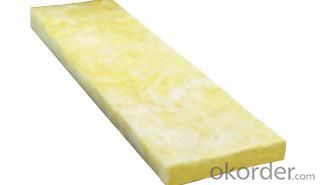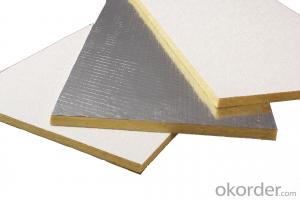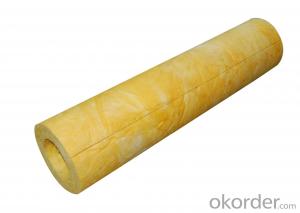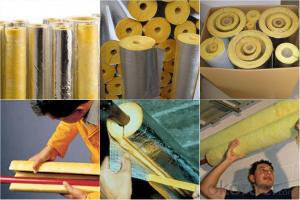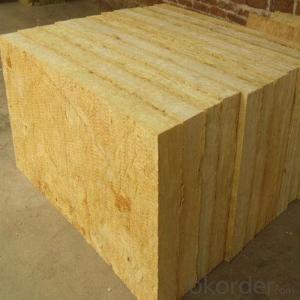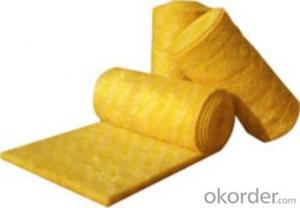Fiberglass Mat Tissue Heat Resistant Sound Absorbing Material Rock Wool Glass Wool Insulation
- Loading Port:
- Tianjin
- Payment Terms:
- TT OR LC
- Min Order Qty:
- 5000 m²
- Supply Capability:
- 20000 m²/month
OKorder Service Pledge
OKorder Financial Service
You Might Also Like
1.Description of Glass Wool Blanket:
Rock wool insulation board is based on superior melted basalt and diabase as the main raw material, through advanced centrifuge system of four-roller cotton process which pulls melted basaltic rockwool into a 4 ~ 7μm non continuous fibers followed by adding a certain amount of binder, dust laying oil, water repellent before settlement folding, curing, cutting and other processes, and then made into the products of different density depending on purpose of usage.
2.Main features of Glass Wool Blanket:
1. Excellent thermal insulation
2. Fireproof
3. Good sound absorption property
4. Stable and durable.
3.Glass Wool Blanket Images:
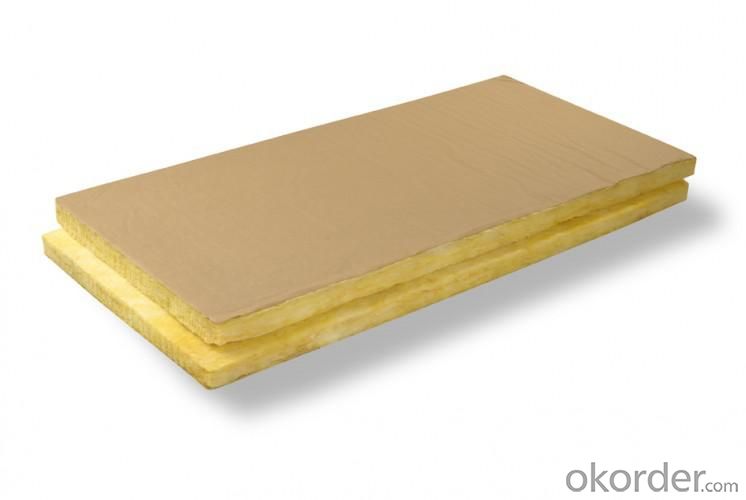
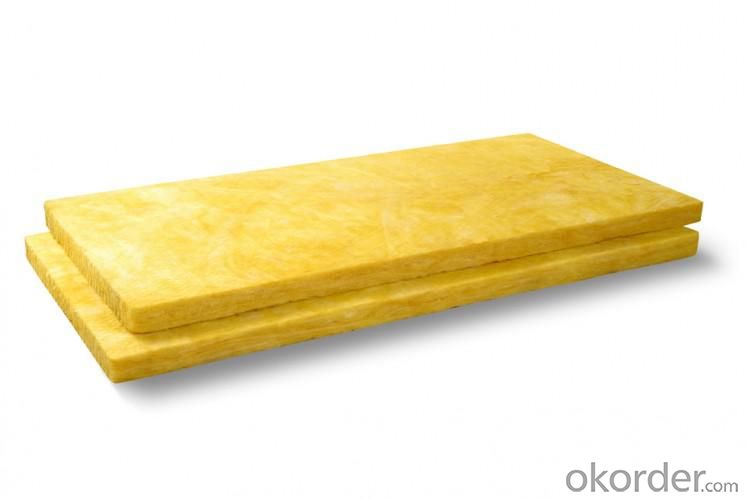
4. Glass Wool Insulation Blanket Technical Parameters:
Property | High/low temperature resistance, oil and fuel resistance, weathering resistance, O zone resistance etc. |
Shape | According to your requirement. |
Color | Any color is available ,according to your requirements. |
Material | NBR, CR, SBR, EPDM, IIR, NR, EP, Silicone, VITON etc. |
Hardness | 30-90ShoreA |
Delivery | In 10 days |
Packing | Plastic bag & carton box or according to your requirements. |
Application | Electronic field, industrial machine & equipment, house-hold appliance, telecommunication, automobile, medical equipment industry etc. |
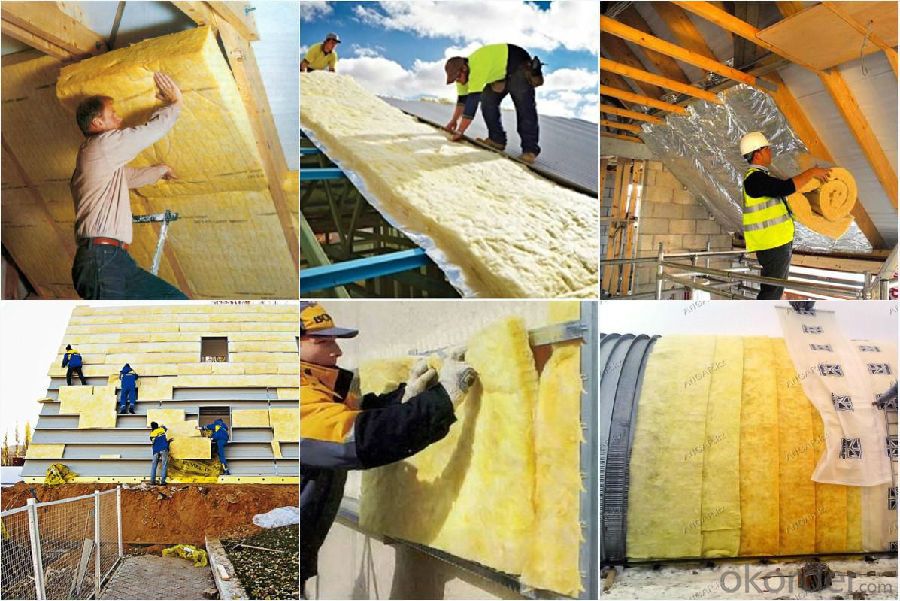
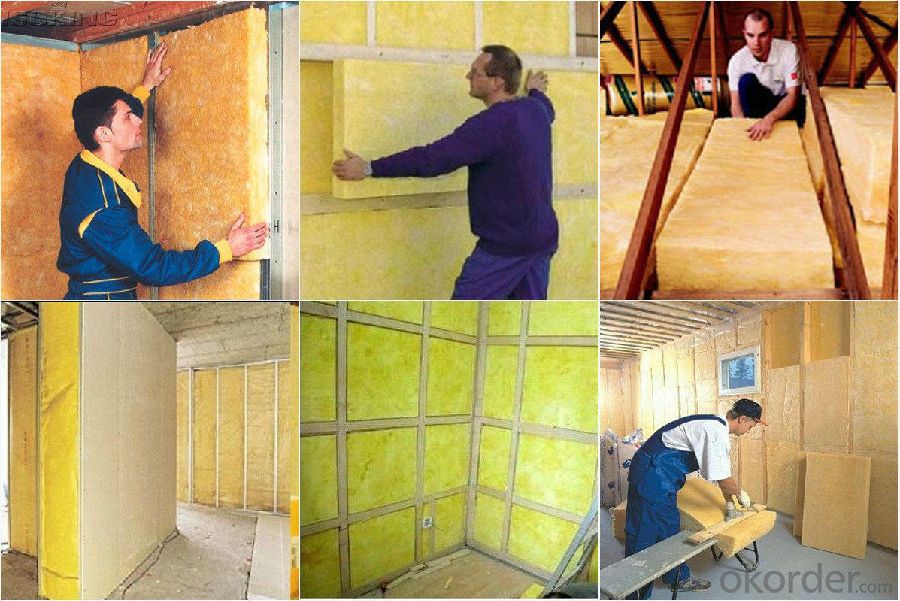
5.FAQ
We have organized several common questions for our clients,may help you sincerely:
①How about your company?
A world class manufacturer & supplier of Glass Wool Blanket is one of the large scale professional investment casting production bases in China,consisting of both casting foundry forging and machining factory. Annually more than 8000 tons Precision casting and forging parts are exported to markets in Europe,America and Japan. OEM casting and forging service available according to customer’s requirement.
②How to guarantee the quality of the products?
We have established the international advanced quality management system every link from raw material to final product we have strict quality test; We resolutely put an end to unqualified products flowing into the market. At the same time, we will provide necessary follow-up service assurance.
- Q: Can fiberglass mat tissue be used for mold making?
- Typically, fiberglass mat tissue is not employed in the process of mold making. Instead, it serves as a thin and lightweight substance composed of interwoven fiberglass strands. Its primary function lies in fortifying and bolstering composite materials, particularly fiberglass laminates. When it comes to mold making, silicone rubber, urethane rubber, or latex are commonly utilized materials. These possess flexibility and possess the ability to impeccably capture intricate details, making them optimal for generating molds of various objects. Furthermore, they possess excellent release properties, thereby facilitating the effortless removal of the mold from its original counterpart. Conversely, fiberglass mat tissue is rigid and lacks the necessary flexibility required in mold making. Rather, it finds greater suitability in applications necessitating strength and reinforcement, as opposed to the replication of intricate shapes or the creation of molds. Hence, if your aim is to fabricate molds, it is advised to select a material explicitly intended for that purpose, instead of utilizing fiberglass mat tissue.
- Q: Can fiberglass mat tissue be used for making fiberglass molds?
- Fiberglass molds can be made using fiberglass mat tissue. This lightweight material is composed of randomly oriented fiberglass strands and is commonly utilized in composite manufacturing to reinforce fiberglass laminates and enhance their strength. For the production of fiberglass molds, the mat tissue can be employed as a surface layer to achieve a smooth and durable finish. Its application helps prevent the formation of air bubbles, increases the mold's overall strength, and provides a suitable surface for the use of release agents or gel coats. Nevertheless, it is important to acknowledge that relying solely on fiberglass mat tissue may not be enough to create a sturdy and long-lasting mold. It is often combined with other fiberglass materials, such as chopped strand mat or woven roving, to bolster the mold's strength and thickness. In summary, fiberglass mat tissue can be a valuable component in the production of fiberglass molds, but it is typically utilized in conjunction with other materials to attain the desired properties.
- Q: Is fiberglass mat tissue suitable for aerospace interiors?
- Yes, fiberglass mat tissue is suitable for aerospace interiors. It is a lightweight and durable material that offers excellent fire resistance and insulation properties, making it a suitable choice for various applications in aerospace interiors, such as insulation, soundproofing, and reinforcing materials. Additionally, fiberglass mat tissue can be easily molded and shaped to fit specific design requirements, making it a versatile option for aerospace interior components.
- Q: Can fiberglass mat tissue be used for swimming pool construction?
- Yes, fiberglass mat tissue can be used for swimming pool construction. It is commonly used as a reinforcement material to provide strength and durability to the pool structure.
- Q: Is fiberglass mat tissue suitable for automotive panel repairs?
- Yes, fiberglass mat tissue is suitable for automotive panel repairs. Fiberglass mat tissue is a versatile and durable material that is commonly used in automotive repairs. It is particularly effective for repairing and reinforcing damaged or weakened areas on automotive panels. Fiberglass mat tissue provides a strong and stable foundation for repairing dents, cracks, or holes in panels, and it can be easily shaped and molded to fit the contours of the panel. Additionally, fiberglass mat tissue is resistant to rust and corrosion, making it a reliable choice for automotive repairs that need to withstand harsh weather conditions and road debris. Overall, fiberglass mat tissue is a suitable and widely-used material for automotive panel repairs due to its strength, durability, and versatility.
- Q: What are the different surface textures available for fiberglass mat tissue?
- Some of the different surface textures available for fiberglass mat tissue include smooth, coarse, textured, embossed, and patterned.
- Q: How does fiberglass mat tissue enhance the strength of composite materials?
- The enhancement of composite material strength is greatly influenced by fiberglass mat tissue. Made up of thin fiberglass strands woven together, the tissue possesses a distinctive structure, with the strands randomly oriented and bonded by a resin binder. This unique structure offers several advantages to composite materials. Firstly, the random orientation of the fiberglass strands within the tissue aids in the even distribution of stress and load across the composite material. Consequently, when a force is exerted on the composite, the tissue prevents localized stress concentrations that could result in cracks or failure. By distributing stress, the fiberglass mat tissue enhances the overall strength and durability of the composite material. Secondly, the resin binder utilized in the fiberglass mat tissue serves as both a reinforcement and bonding agent. During the manufacturing process of the composite material, the resin binder infiltrates the fibers of the tissue, creating a robust and cohesive structure. This not only enhances the overall strength of the composite material but also improves its resistance to impact and fatigue. Moreover, the presence of fiberglass strands within the tissue augments the stiffness of the composite material. When combined with the resin binder, these strands establish a rigid framework that enhances the structural integrity of the composite. This increased stiffness renders the material more resistant to deformation and improves its load-bearing capabilities. Additionally, fiberglass mat tissue offers thermal and electrical insulation properties to composite materials. The fiberglass strands act as a barrier, minimizing heat transfer and preventing electrical conductivity. Consequently, the composite material becomes suitable for applications that require insulation, such as in electrical enclosures or thermal insulation panels. In conclusion, fiberglass mat tissue plays a critical role in enhancing the strength of composite materials by distributing stress, reinforcing the structure, increasing stiffness, and providing additional insulation properties. With its random orientation, resin binder, and unique characteristics, it is an indispensable component in the production of high-performance composites utilized across various industries, including aerospace, automotive, construction, and marine.
- Q: Can fiberglass mat tissue be used for repairing fiberglass surfboards?
- Yes, fiberglass mat tissue can be used for repairing fiberglass surfboards. It is a common material used in surfboard repairs as it provides added strength and stability to damaged areas.
- Q: Can fiberglass mat tissue be used for reinforcement in composites?
- Yes, fiberglass mat tissue can be used for reinforcement in composites. It is commonly used as a reinforcement material in various composite applications due to its high strength, durability, and excellent bonding properties. The fiberglass mat tissue helps enhance the mechanical properties and structural integrity of the composite material.
- Q: What are the potential health and safety concerns associated with working with fiberglass mat tissue?
- There are several potential health and safety concerns when it comes to working with fiberglass mat tissue. First and foremost, the presence of tiny glass fibers in fiberglass means that they can become airborne when the material is cut, sanded, or disturbed. Inhaling these fibers can lead to respiratory problems like coughing, wheezing, and difficulty breathing. Prolonged exposure to fiberglass dust can also result in lung diseases such as fibrosis or even lung cancer. Furthermore, direct contact with fiberglass mat tissue can cause skin irritation, resulting in itching, redness, and rashes. The sharp glass fibers can also cause small cuts or punctures, which can lead to infection if not properly treated. In addition, fiberglass is a lightweight material that can easily become airborne and settle on surfaces. This increases the risk of ingestion or contamination of food and drinks. Swallowing fiberglass particles can irritate the digestive system, resulting in symptoms like nausea, vomiting, and abdominal pain. To ensure the well-being of workers, it is important to take proper precautions when working with fiberglass mat tissue. This includes wearing personal protective equipment such as gloves, safety glasses, and respiratory masks to minimize exposure to airborne fibers. Adequate ventilation and dust control measures should also be implemented to prevent the accumulation of fiberglass dust in the work area. Regular cleaning and maintenance should be carried out to keep the work environment free from fiberglass particles. Additionally, workers should receive education on the correct handling and disposal of fiberglass materials to minimize the risk of contamination. Overall, while fiberglass mat tissue is widely used, it is crucial to be aware of the potential health and safety concerns associated with its handling and to take necessary precautions to minimize the risk of exposure.
Send your message to us
Fiberglass Mat Tissue Heat Resistant Sound Absorbing Material Rock Wool Glass Wool Insulation
- Loading Port:
- Tianjin
- Payment Terms:
- TT OR LC
- Min Order Qty:
- 5000 m²
- Supply Capability:
- 20000 m²/month
OKorder Service Pledge
OKorder Financial Service
Similar products
Hot products
Hot Searches
Related keywords
